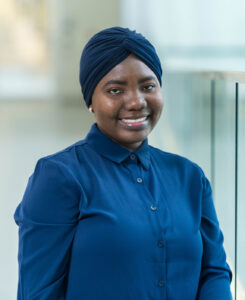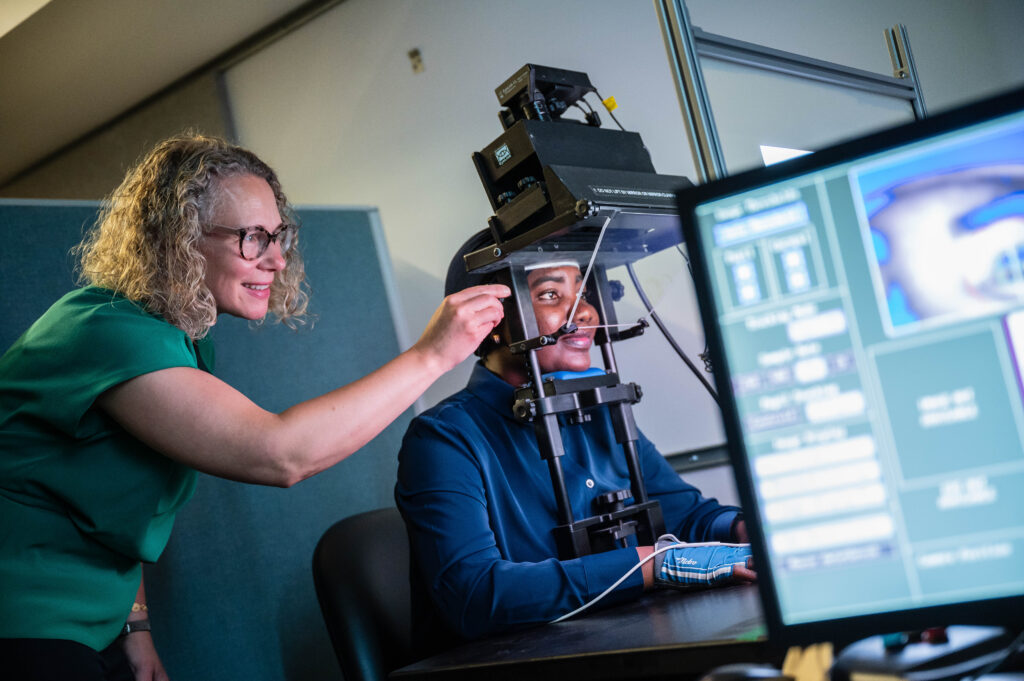Abibat Abiodun Akande is a PhD student in neuroscience under the supervision of Dr. Miriam Spering in the Oculomotor Lab. We caught up with Abibat to learn more about her research interests and her experience as a graduate student.

Abibat Abiodun Akande
What is your thesis project on?
My PhD thesis focuses on how multisensory and multisource information guides human perception and motor action. My PhD research aims at understanding the processes that govern human eye and hand movements in complex sensory environments, such as when navigating traffic or catching a ball. This endeavor is rooted in an interdisciplinary approach, reflecting my diverse academic journey across three continents and three academic disciplines.
What is your educational background?
I commenced my academic training with a Bachelor of Science degree in Anatomy from the University of Ilorin, Nigeria, in 2016. Building on this foundation, I pursued a master’s degree in Cell Biology and Genetics at the University of Lagos, Nigeria, graduating in 2019. Seeking to augment my comprehension of the human body with a deeper insight into the neural mechanisms underpinning sensory, motor, and cognitive functions, I embarked on an MSc in Integrative Neuroscience at Otto-Von-Guericke University in Magdeburg, Germany where I graduated in 2022. While studying for my masters in Integrative Neuroscience, I was simultaneously involved as a research assistant in a project centered on perceptual decision-making, employing computational modeling and psychophysics, which further piqued my interest in vision and visual science research. In the fall of 2022, I joined UBC as a PhD student in the Neuroscience program and Dr. Miriam Spering’s lab.
What skills do you bring from your previous education and what skills are you gaining currently in the graduate program?
During my master’s degree, I was able to broaden my skill set encompassing scientific writing and experimental research methods including neural tracing immunohistochemistry, imaging and cell counting. Since joining the lab of Dr. Spering, I have been able to learn to work with eye trackers, hand trackers, analyze eye and hand movement data, and increase my programming skills overall.

Abibat Abiodun Akande with Dr. Miriam Spering
What is a typical day like for you as a graduate student?
A typical day for me ranges from conducting experiments to analyzing data, attending talks and seminars to reading papers. I am also involved with the Neuroscience Trainee Association as the Academic General member.
What are your future career goals?
I would like to remain in academia and keep contributing to science and research as well as the body of knowledge in the vision and visual science field. After my PhD, I hope to go ahead and become a post doc and hopefully become a professor someday.
What advice do you have for students interested in graduate school?
I would suggest that you find an area of research that interests you, this might keep you motivated as you move along in your academic journey.


